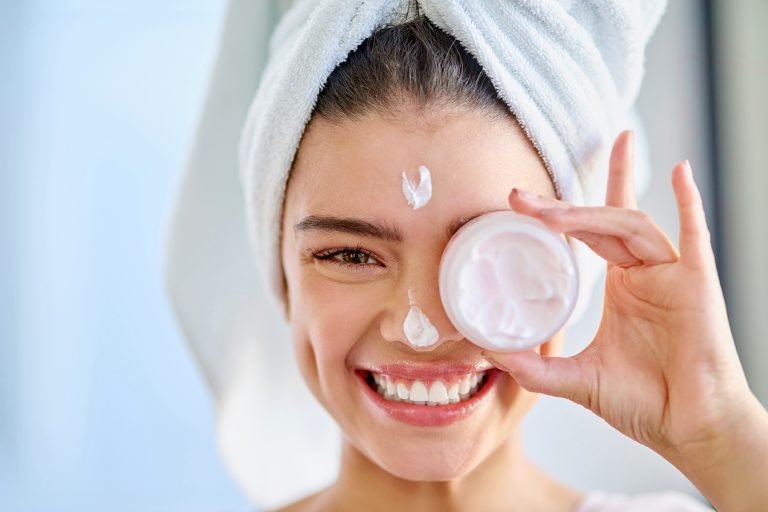Every season brings its own challenges, from dry winter air to the intense sun of summer. By understanding the key factors that impact your skin, you can develop a care regimen that keeps your skin looking its best regardless of the weather.
Importance of Year-Round Skin Care
Maintaining healthy skin is essential not only for your appearance but also for your overall well-being. The skin is the body’s largest organ and acts as the first line of defense against the environment, protecting you from pathogens and excessive water loss.
Overview of Key Factors Affecting Skin Health
Various elements affect skin health, including genetics, diet, stress levels, and climate. While some of these are beyond our control, there are many strategies to mitigate their impacts and promote skin health.
Understanding Your Skin Type
Identifying your skin type is the first step toward effective skin care. Each type requires different products and care techniques to maintain its balance and health.
Identifying Different Skin Types

Skin types range from oily, dry, and combination to sensitive and normal. Understanding your type helps tailor your skin care routine to the specific needs of your skin.
Tailoring Skin Care According to Skin Type
For example, individuals with oily skin might benefit from a lightweight, organic facial cleanser that doesn’t strip the skin’s natural oils, while those with dry skin need richer, more hydrating products.
Daily Skin Care Routine
A consistent daily skin care routine is crucial in maintaining skin health. It can prevent potential issues and improve the appearance and resilience of your skin.
Cleansing and Moisturizing
Cleanse your skin twice a day—morning and night—to remove impurities and excess oils. Follow up with a moisturizer that suits your skin type to keep your skin hydrated and protected.
Importance of Sun Protection
Regardless of the season, sun protection is vital. Ultraviolet rays can cause not only burns but also long-term damage like wrinkles and skin cancer. Applying a broad-spectrum sunscreen every day can shield your skin from these harmful effects.
Seasonal Skin Care Adjustments

As seasons change, so should your skin care routine to address the varying environmental conditions that can affect skin health.
Winter ─ Keeping Skin Hydrated
During winter, the combination of low humidity and indoor heating can strip your skin of moisture. Using a humidifier and hydrating more intensely can help combat this dryness.
Summer ─ Protecting Skin from Overexposure
In summer, increase your sunscreen use and wear protective clothing to guard against the harsher sun. Additionally, staying hydrated and avoiding peak sun hours are key to maintaining skin health.
Nutrition and Hydration

What you eat plays a pivotal role in skin health. Nutrients from your diet help repair skin, build collagen, and promote elasticity.
Best Foods for Skin Health
Incorporate foods rich in antioxidants, like berries, nuts, and green vegetables, to help your skin repair itself and stay firm.
The Role of Water in Maintaining Skin Elasticity
Drinking plenty of water is essential for skin hydration. It helps flush out toxins and ensures that nutrients are delivered to the skin cells.
The Impact of Sleep on Skin Health

Sleep is when your skin undergoes repair and renewal. Not getting enough sleep can lead to visible signs of aging, such as wrinkles and a dull complexion.
Sleep Patterns and Skin Regeneration
Aiming for 7-8 hours of quality sleep each night can significantly improve your skin’s health and appearance.
Tips for Improving Sleep Quality
Establishing a regular sleep schedule and creating a restful environment free from electronic disturbances can enhance the quality of your sleep.
Stress Management Techniques
Stress can trigger skin issues like breakouts and rashes. Managing your stress is a key component in maintaining skin health.
Identifying Stress-Related Skin Issues
Recognize the signs of stress on your skin and take steps to mitigate them. Techniques like mindfulness and regular exercise can reduce stress levels and improve your skin health.
Relaxation and Its Benefits for the Skin
Activities such as yoga, deep breathing, and spending time in nature can reduce stress and, by extension, improve skin health.
The Importance of Exfoliation

Exfoliation helps to remove dead skin cells and promote new cell growth, keeping your skin smooth and radiant. However, it’s essential to choose the right method and frequency for your skin type to avoid irritation.
Types of Exfoliants
Exfoliants can be mechanical (scrubs) or chemical (AHAs, BHAs). Mechanical exfoliants physically remove dead skin cells, while chemical exfoliants dissolve them. Each has its benefits depending on your skin type and concerns.
How Often to Exfoliate
For most skin types, exfoliating 1-3 times a week is sufficient. Over-exfoliating can damage your skin barrier, leading to irritation, so it’s important to find a balance.
The Role of Skincare Ingredients
The ingredients in your skincare products can significantly impact their effectiveness. Knowing which ingredients benefit your skin type can optimize your routine.
Key Ingredients to Look For
Vitamin C, retinoids, hyaluronic acid, and niacinamide are popular ingredients known to boost skin health. Vitamin C brightens, retinoids promote collagen, hyaluronic acid hydrates, and niacinamide soothes.
Avoiding Harmful Ingredients
Be cautious of products that contain parabens, sulfates, and artificial fragrances, as they can irritate sensitive skin or disrupt its natural balance.
The Impact of Air Quality on Skin

Environmental factors, such as pollution and indoor air quality, can negatively affect your skin. Pollution particles can clog pores, leading to breakouts and premature aging.
Protecting Your Skin from Pollution
Incorporating antioxidants like Vitamin E and C into your skincare can help neutralize damage from pollution. Additionally, cleansing thoroughly at night removes dirt and impurities.
Improving Indoor Air Quality
Using an air purifier and maintaining proper humidity levels can help create a skin-friendly environment, reducing dryness and irritation caused by poor indoor air quality.
Advanced Skin Care Tips
For those looking for more than just the basics, considering professional treatments might be beneficial.
When to Consider Professional Treatments
If your skin issues persist despite a good care routine, consulting a dermatologist can provide you with more specialized care.
Emerging Trends and Technologies in Skin Care
Stay informed about the latest in skincare, from innovations in ingredients to technological advancements in skin treatments.
Maintaining healthy skin is a year-round commitment that requires understanding your skin type, adapting to environmental changes, and managing lifestyle factors like diet and stress. By following these tips, you can ensure that your skin remains radiant and healthy, no matter the season.

